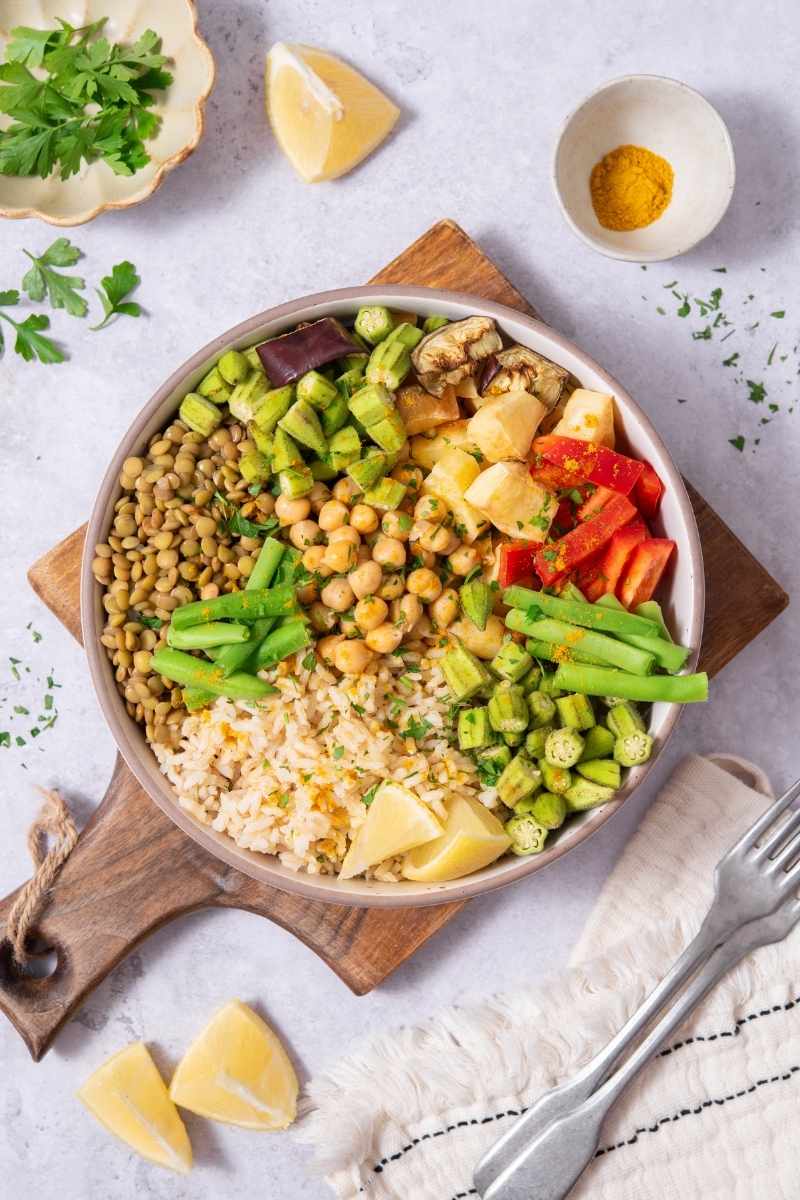
When you read the ingredient list on this recipe, you may be surprised to see multiple starchy foods listed. That’s not a mistake – in fact, it’s intentional.
Seems like the perfect opportunity to do some myth-busting around carbohydrates and diabetes!
If you are new to the Mastering Diabetes Method, then you may be caught in the low-carb mindset that is common with diabetes. Many people believe that low-carb eating is ideal because by reducing or avoiding carbs, you can immediately lower blood sugar levels and reduce the need for insulin or medication.
However, this approach misses the root cause of insulin resistance. Those things might look good on the outside, but the issue that caused your diabetes in the first place still exists on the inside – and by eating a low-carb diet, you actually make it worse.
You see, it’s not carbohydrates themselves that cause insulin resistance, but rather excess dietary fat. The excess fat blocks glucose from entering cells efficiently.
When you lower your fat intake and eat carbs that are whole, unprocessed plant foods, your insulin sensitivity actually improves.
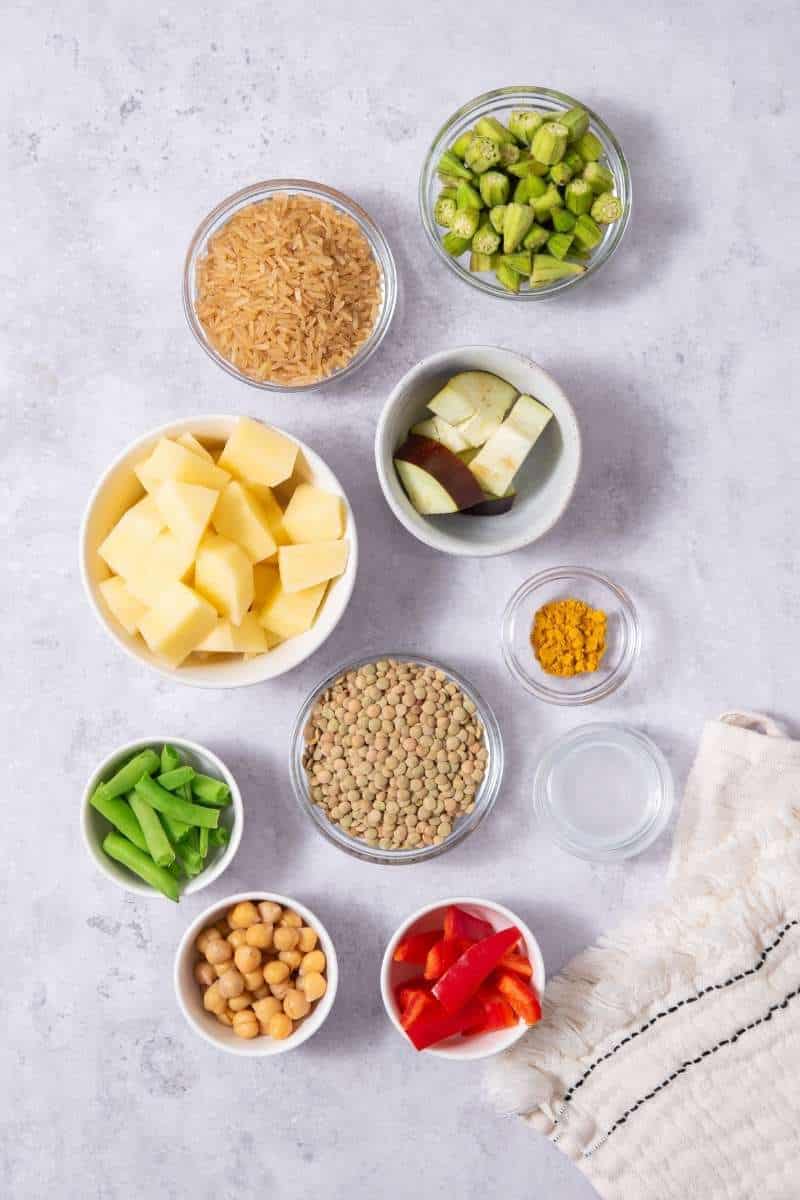
That’s why eating a high-carb, low-fat meal like this one can be incredibly powerful for reversing insulin resistance, stabilizing blood sugar, and improving A1c over time. It allows your body to use glucose the way it’s designed to—efficiently, cleanly, and without resistance.
Which is great news, because who doesn’t love potatoes?! Speaking of…
Carbohydrate Confidence
This recipe includes both potatoes and brown rice, two whole food sources of complex carbohydrates that you can feel confident eating.
Research shows that consuming whole grains is associated with a lower risk of developing type 2 diabetes.
For those living with diabetes currently, high carb diets are effective at lowering blood sugar, A1c, weight, and cholesterol levels – especially if it is low in fat and comprised of whole foods, which this recipe definitely is!
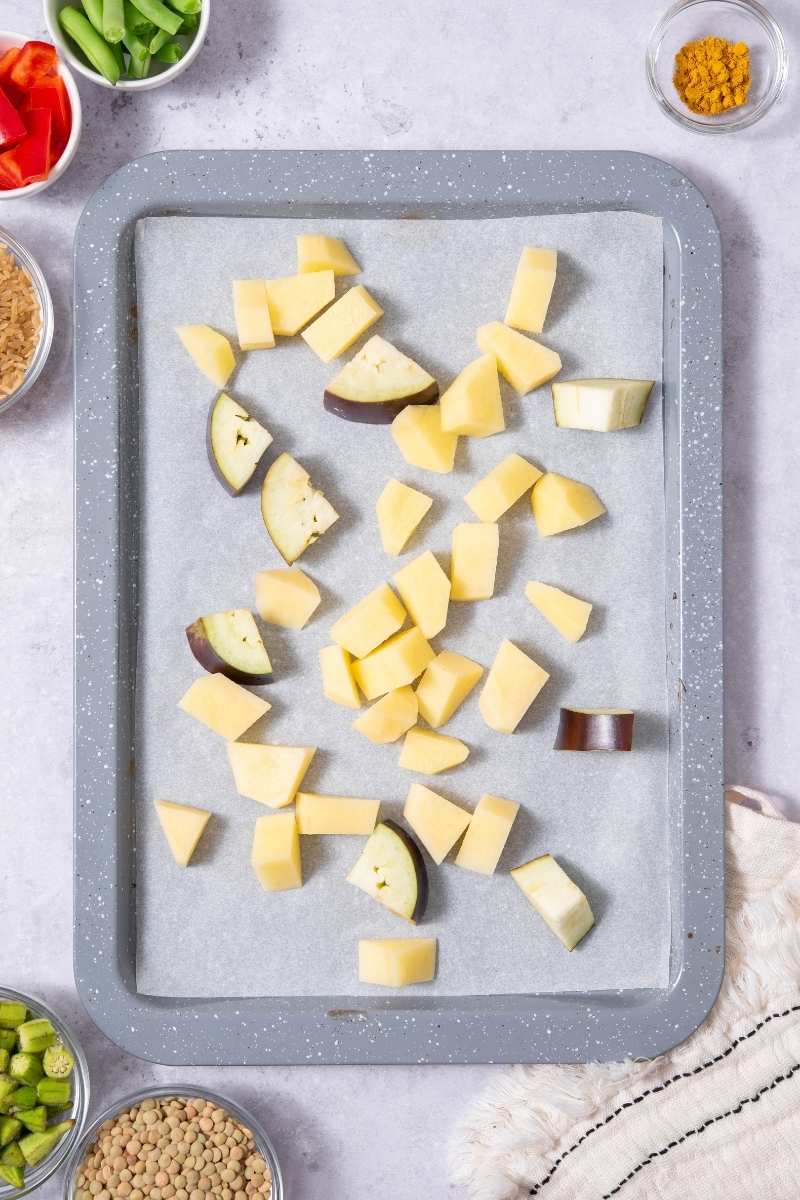
Bring On The Beans!
Legumes are also nothing to skimp on, despite what you may have heard – or what you may have experienced with eating them in the past!
If you’re reading this and thinking, “But beans spike my blood sugar!” we hear you. And, that doesn’t need to be the case. Here’s why:
If beans (or grains, or fruit, etc) are causing high blood sugar, it’s not the beans themselves — it’s a sign that you are currently living with insulin resistance.
The beans are just revealing the underlying issue, not causing it.
Like we said earlier, eating beans actually helps you to reverse insulin resistance and improve your blood sugar.
Chickpeas are a fan favorite when it comes to beans. They have a great texture and are very versatile in recipes. Plus, a recent (2025) meta-analysis of controlled trials showed that chickpeas significantly reduced post-meal blood glucose. Wahoo!
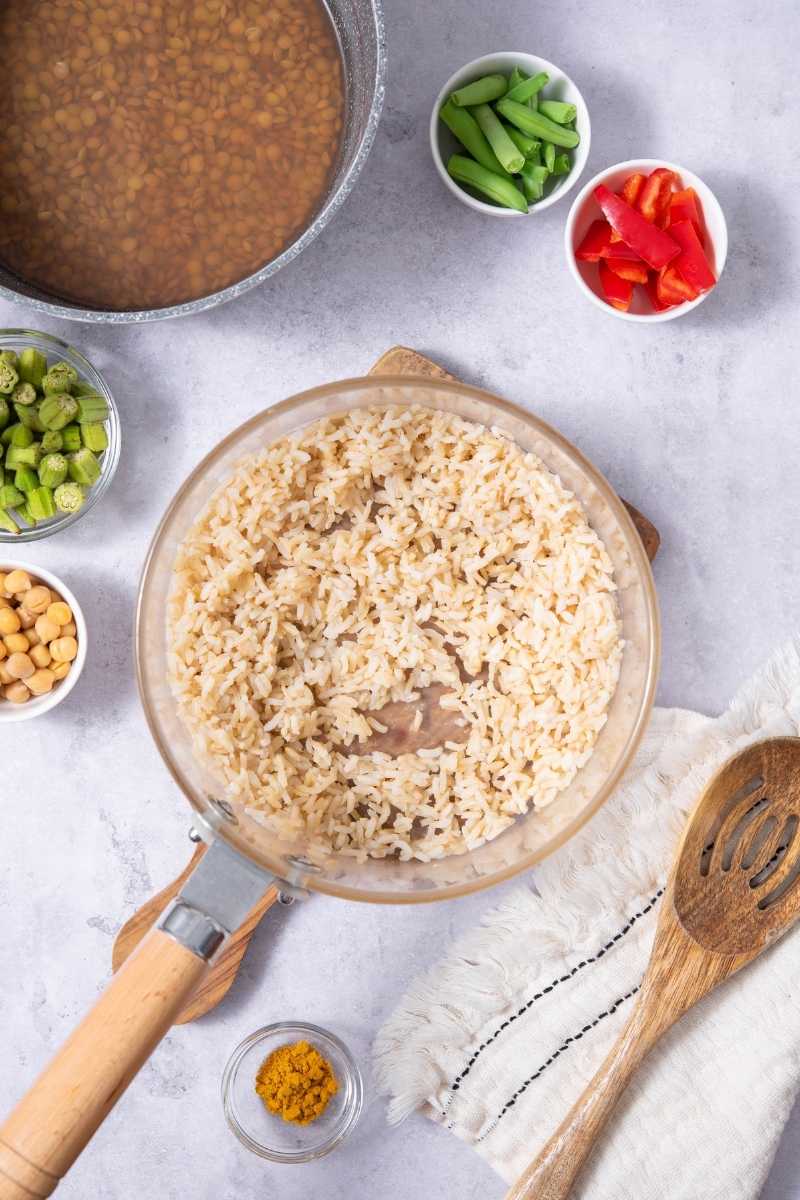
Spice It Up
Spices are the magic garnish that can turn a simple bowl into a flavor-blasted, nutrient-rich meal. These specific spices bring anti-inflammatory, antioxidant, and blood-sugar-lowering benefits, while amplifying the flavor without added fat, sugar, or salt.
Turmeric is known for its antioxidant and anti-inflammatory effects, primarily from the curcumin found in it. Some studies suggest it can lower fasting blood sugar as well.
Ginger’s polyphenols may help improve insulin sensitivity, slow carbohydrate digestion, and support lowering fasting blood sugar and A1c. Ginger also adds warmth and a peppery zing to the dish.
Cumin improves blood sugar and lipid profiles in people with type 2 diabetes. In fact, compared to a standard diabetes medication, cumin led to lower fasting glucose, cholesterol, triglycerides, and LDL, while raising HDL cholesterol.
So load up on spices and let them enhance the meal – in so many ways!
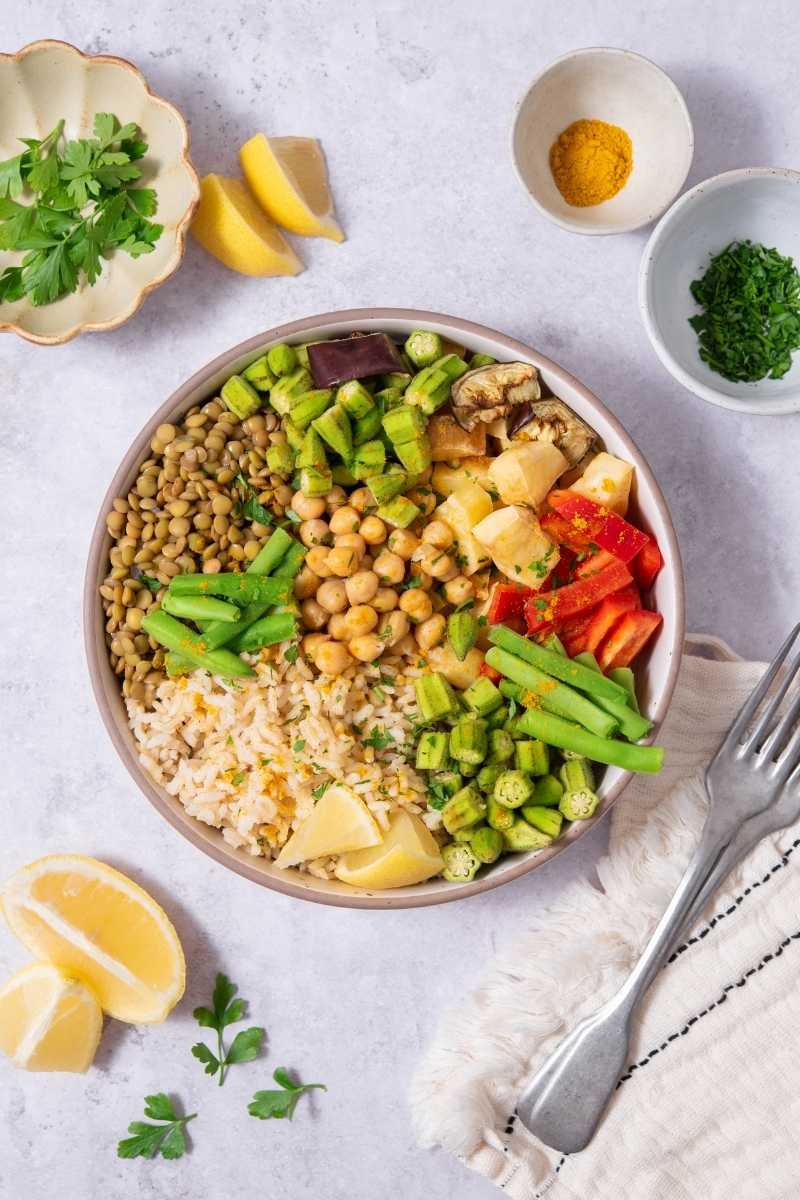
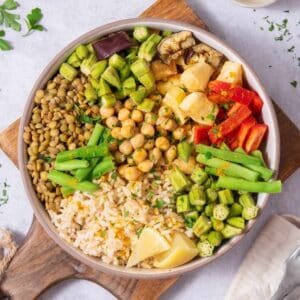
Curry Car-Bowl-Hydrate
Ingredients
Ingredients
- 2 cups (404g) Brown Rice (cooked) - About ¾ of a 20-ounce bag of frozen brown rice
- 1 cup (198g) Lentils (cooked, drained and rinsed) - About 1 full 15-ounce can
- ½ cup (82g) Chickpeas (cooked, drained and rinsed) - About ½ of a 15-ounce can
- 1 cup (150g) Potatoes (chopped) - About 1 medium-sized potato
- ½ cup (41g) Eggplant (sliced) - About ⅕ of a small-sized eggplant
- ½ cup (75g) Red Pepper (sliced) - About 1 small-sized red pepper
- ½ cup (50g) Green Beans (sliced) - Available in 12-ounce bags
- ¼ cup (47g) Okra (chopped) - Available in 12-ounce bags
- 2 tbsps (31g) Lemon Juice - Juice from ¾ of a lemon
- Optional: Cumin, Curry, Turmeric, Coriander, or Ginger to taste - Available in spice jars
Instructions
Directions
- Cook lentils and chickpeas according to instructions, or use no-sodium canned or prepared chickpeas and lentils.
- Cook or heat brown rice according to package instructions.
- Roast or steam potatoes and eggplant. To roast: Slice vegetables into bite-sized pieces. Preheat oven to 425 and roast potatoes and eggplant for 15 minutes. Flip the vegetables halfway through cooking. To steam: Place vegetables into a steam basket and steam for 5-7 minutes
- Slice red peppers, okra, and green beans.
- Arrange bowl with greens on the bottom, adding all of the other ingredients on top.
- Add lemon juice from fresh lemon wedges, along with the spices to taste.
Nutrition
Lower Your A1c and Fasting Blood Sugar... Guaranteed
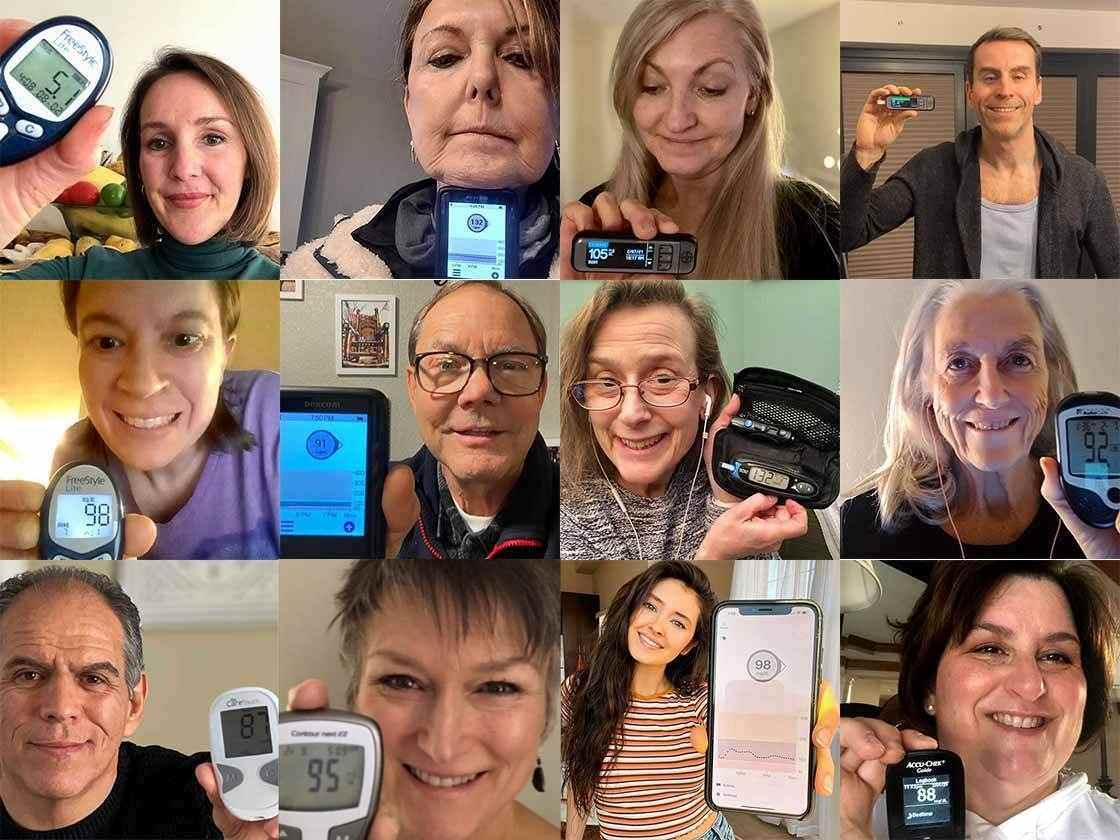
Your results are guaranteed. Join more than 10,000 ecstatic members today
Personalized coaching puts you in immediate control of your diabetes health, helps you gain energy, improves your quality of life, and reduces or eliminates your meds.

